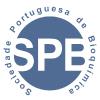
Plenary Lectures
IUBMB Claudina Rodrigues-Pousada Lecture – Opening Plenary Lecture
Mapping the human body one cell at a time

Sarah Teichmann
Wellcome Sanger Institute, Cambridge, UK
Sarah Teichmann is interested in global principles of regulation of gene expression and protein complexes, with a focus on immunity. She did her PhD at the MRC Laboratory of Molecular Biology, Cambridge, UK and was a Beit Memorial Fellow at University College London. She started her group at the MRC Laboratory of Molecular Biology in 2001, discovering stereotypical pathways of assembly and evolution of protein complexes during this time. In 2013, she moved to the Wellcome Genome Campus in Hinxton/Cambridge, jointly with the EMBL-European Bioinformatics Institute and the Wellcome Sanger Institute (WSI). In February 2016 she became Head of the Cellular Genetics Programme at the WSI and co-founded the Human Cell Atlas international initiative which she continues to lead. Sarah Teichmann was elected a member of EMBO in 2012, a fellow of the Academy of Medical Sciences in 2015 and a fellow of the Royal Society in 2020.
FEBS Theodor Bücher Lecture – Closing Plenary Lecture
MINFLUX and MINSTED provide molecule-scale resolution in fluorescence microscopy

Stefan W. Hell
Max Planck Institute for Biophysical Chemistry, Göttingen, Germany
Stefan W. Hell is a scientific member of the Max Planck Society and a director at both the Max Planck Institute for Medical Research in Heidelberg, Germany and the Max Planck Institute for Biophysical Chemistry in Göttingen. Stefan Hell received his doctorate (1990) in physics from the University of Heidelberg. From 1991 to 1993 he worked at the European Molecular Biology Laboratory, also in Heidelberg, and then at the University of Turku, Finland, between 1993 and 1996, with a stay at the University of Oxford, UK, in 1994. In 1997 he was appointed to the Max Planck Institute for Biophysical Chemistry in Göttingen, where he has built up a research group dedicated to sub-diffraction-resolution microscopy. Stefan Hell is credited with having conceived, validated and applied the first viable concept for breaking Abbe’s diffraction-limited resolution barrier in a light-focusing microscope. He has received several awards, including the 2014 Kavli Prize in Nanoscience and the Nobel Prize in Chemistry.
FEBS Datta Lecture
Gut microbiota: fellow travellers that regulate brain and behaviour across the lifespan

John F. Cryan
University College Cork, Ireland
John F. Cryan is Vice President for Research & Innovation at University College Cork (UCC) and is also a Principal Investigator in the APC Microbiome Institute, Cork. His current research is focused on understanding the interaction between brain, gut and microbiome and how it applies to stress, psychiatric and immune-related disorders at key time-windows across the lifespan. John Cryan has published over 550 papers and is a Senior Editor of Neuropharmacology and of Neurobiology of Stress. He is on the editorial board of a further 15 journals. He has co-edited four books and is co-author of the bestselling “The Psychobiotic Revolution: Mood, Food, and the New Science of the Gut-Brain Connection” (National Geographic Press, 2017). He has received numerous awards including UCC Researcher of the Year in 2012, the University of Utrecht Award for Excellence in Pharmaceutical Research in 2013 and UCC Research Communicator of the Year 2017, and he was named on the Thomson Reuters Highly Cited Researcher list in 2014 and Clarivate Analytics Highly Cited Researcher list in 2017 through to 2020. He was elected a Member of the Royal Irish Academy in 2017. He also received a Research Mentor Award from the American Gastroenterology Association and the Tom Connor Distinguished Scientist Award from Neuroscience Ireland in 2017, and was awarded an honorary degree from the University of Antwerp, Belgium in 2018. He was a TEDMED speaker in Washington in 2014 and is Past-President of the European Behavioural Pharmacology Society.
EMBO Lecture
New approaches to enhance regeneration of aged skeletal muscles

Pura Muñoz-Cánoves
ICREA, Pompeu Fabra University, Barcelona and CNIC, Madrid, Spain
Pura Muñoz-Cánoves obtained her PhD in biology at the Madrid Autonomous University, Spain for work carried out at The Scripps Research Institute, USA, and did postdoctoral work at the University of California – San Diego and The Scripps Research Institute. In 1995 she joined the Cancer Research Institute (now IdiBell) in Barcelona, Spain as a postdoc, becoming an independent group leader in 1997. In 2002 her group moved to the Center for Genomic Regulation (CRG) in Barcelona, and she became a senior group leader there in 2007. In 2009 she moved to the Pompeu Fabra University (UPF), Barcelona, supported by ICREA, as Coordinator of the Cell Biology Unit. At present, she is an ICREA Professor and Cell Biology Professor in the Department of Experimental and Health Sciences at the UPF, and since May 2016 she holds a double appointment at the Centro Nacional de Investigaciones Cardiovasculares (CNIC) in Madrid. She is an EMBO Member. The focus of her research is tissue regeneration in aging and disease, particularly skeletal muscle, addressing. two key questions: How do tissues maintain their reparative capacity throughout life? And what changes do resident stem cells undergo that modify their response to tissue injury with aging?
FEBS Sir Hans Krebs Lecture
Metabolic liver disease: leaping forward
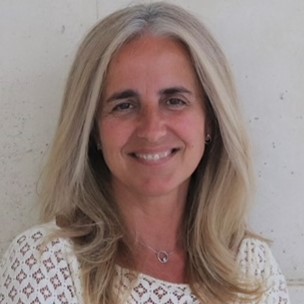
Cecília Rodrigues
University of Lisbon, Portugal
Cecília Rodrigues received her PhD in pharmacy (biochemistry) from the University of Lisbon, Portugal for work at the University of Cincinnati, USA, and conducted postdoctoral research at the University of Minnesota, USA. In 2009, she was appointed full professor at the Faculty of Pharmacy, University of Lisbon. In addition to her career in higher education and research institutions as head of department, director of research centre, coordinator of PhD and MSc programmes in biopharmaceutical innovation, and more recently as vice-rector of research and innovation at the University of Lisbon, Cecilia Rodrigues shares her time between university teaching and investigation in translational drug and biomarker discovery. She has supervised national and international students and postdoctoral scientists, and secured training and research funding from national and EU sources and through private investment. Her research has developed promising technologies protected by global patents and explored by spin-offs that have moved to clinical trials worldwide. She is a past governing board member of the European Association for the Study of the Liver and present associate editor of Hepatology journal.
FEBS/EMBO Women in Science Award Lecture
Protein synthesis in remote neuronal spaces
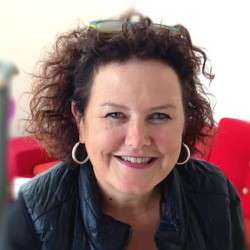
Erin Schuman
Max Planck Institute for Brain Research, Frankfurt, Germany
Erin Schuman received her PhD in neuroscience from Princeton University and conducted postdoctoral research in the Dept of Molecular and Cellular Physiology at Stanford University, USA. In 1993, she was appointed to the Biology Faculty at the California Institute of Technology, and from 1997 to 2009, she was an investigator at the Howard Hughes Medical Institute. In 2009, she moved to Frankfurt, Germany, with her husband Gilles Laurent to design and found the new Max Planck Institute for Brain Research. Schuman has been an EMBO Member since 2014 and received the Salpeter Lifetime Achievement Award of the Society for Neuroscience in 2018. In 2020, she was awarded the Louis-Jeantet Prize for Medicine as well as the ALBA-FKNE Diversity Prize, and was elected to the US National Academy of Sciences. Erin Schuman has a long-standing interest in molecular and cellular processes that control protein synthesis and degradation in neurons and their synapses. The complex morphology of neurons, with most synapses located hundreds of microns from the cell body, presents a logistical challenge for synaptic proteomes. Neurons have solved it by localizing important cell biological machines within dendrites and axons. Following her discovery in 1996 that proteins made locally in dendrites are required for synaptic plasticity, Schuman has pursued the identification of the mRNA and ribosome populations in dendrites and axons. She also elucidated the population of mRNAs translated in subcellular compartments as well as the nature and format of ribosomes. Schuman has developed platforms to label, purify, identify and visualize newly synthesized proteins in neurons and other cells.
IUBMB E.C. Slater Lecture
Neurovascular pathobiology of vascular cognitive impairment and Alzheimer’s disease

Costantino Iadecola
Cornell University, NY, USA
Costantino Iadecola, MD is the Director and Chair of the Feil Family Brain and Mind Research Institute and the Anne Parrish Titzell Professor of Neurology at Weill Cornell Medicine, New York. His research focuses on the basic mechanisms of neurovascular function and on the cellular and molecular alterations underlying ischemic brain injury, neurodegeneration and other conditions associated with cognitive impairment. A pioneer in establishing the concept of the neurovascular unit, Costantino Iadecola has championed the involvement of neurovascular dysfunction in neurodegenerative diseases, and the role of innate immunity and the microbiome in ischemic brain injury. He has been involved, as editor or editorial board member, in several journals. Costantino Iadecola has received two Javits Awards from the NIH, the Willis Award [the highest honor in stroke research bestowed by the American Heart Association (AHA)], the Zenith Fellow Award from the Alzheimer’s Association, and the Excellence Award in Hypertension Research from the AHA, and he was elected to the Association of American Physicians. Clarivate Analytics lists him as one of the world’s Highly Cited Researchers for ranking in the top 1% of the most-cited authors in neuroscience and behavioral science. In 2019 he was elected Distinguished Scientist by the AHA and in 2021 was the first neuroscientist to receive the Basic Research Prize from the AHA.
IUBMB Kunio Yagi Lecture
The KEAP1-NRF2 pathway regulating cellular response against oxidative and electrophilic stresses

Masayuki Yamamoto
Tohoku University Graduate School of Medicine, Japan
Masayuki Yamamoto graduated from Tohoku University School of Medicine in 1979 and Graduate School of Medicine in 1983. In 1983–1986, he was a postdoctoral fellow at Northwestern University, IL, USA with Professor Doug Engel. In 1989, Masayuki Yamamoto revisited the Engel laboratory and in collaboration identified the GATA family of transcription factors, which are now widely studied as one of the prototype transcription factor families regulating lineage commitment and cell differentiation. In 1991, Masayuki Yamamoto returned to Japan and started a series of analyses on the CNC-sMAF family of transcription factors, and in 1997 he identified the KEAP1-NRF2 system regulating the cellular response against electrophilic and oxidative stresses. Since then, he has been addressing many questions related to this important regulatory pathway. He also established the Tohoku Medical Megabank organization in 2012 aiming to support constructive regeneration of the tsunami-devastated area from the Great East Japan Earthquake and has been serving as a Founding Executive Director.
PABMB Lecture
Phase separation, phase transition and aggregation of mutant p53 as an emerging target in cancer

Jerson L. Silva
Federal University of Rio de Janeiro, Brazil
Jerson Lima Silva, MD, PhD is Full Professor of Biochemistry in the Institute of Medical Biochemistry at the Federal University of Rio de Janeiro. His main research interest is the study of the basic factors responsible for protein folding, protein–nucleic acid interactions and for the formation of biological assemblages such as viruses and amyloid aggregates. Jerson Silva’s most pioneering discovery was that mutant forms of the tumor suppressor protein p53, involved in various forms of cancer, undergo amyloid aggregation similar to that which occurs in neurodegenerative diseases. He has published more than 200 full papers. His research articles are highly cited with more than 9500 citations (h-index = 54). He was the Advisor of 36 PhD theses. Jerson Silva has received many prizes and awards, including: Fellow of the John Simon Guggenheim Foundation, 1991; International Scholar, Howard Hughes Medical Institute, 1997; National Unibanco Award in Medicine for Medical Research (shared), 1998; Brazilian Order of Scientific Merit, Presidency of the Republic of Brazil (Command in 2002, Great-Cross in 2009); TWAS Prize in Biology 2005 from the Academy of Sciences for the Developing World (TWAS); FCW Prize in General Science from Fundação Conrado Wessel, 2010; "Faz Diferença" Prize in Science and Health 2012 (Jornal O GLOBO); and the Gregorio Weber Award (American Biophysical Society, 2018). He is a member of the Brazilian Academy of Sciences, Fellow of TWAS and Fellow of the National Academy of Medicine (Brazil). Silva is the Founding Director of the National Center of Nuclear Magnetic Resonance (UFRJ), Rio de Janeiro. He is currently the Coordinator of the National Institute of Science and Technology for Structural Biology and Biomaging (INBEB), Rio de Janeiro and President of the Rio de Janeiro State Funding Agency (FAPERJ).
The FEBS Journal Richard Perham Prize Lecture
Vitamin D effects on human colon normal and tumor organoids
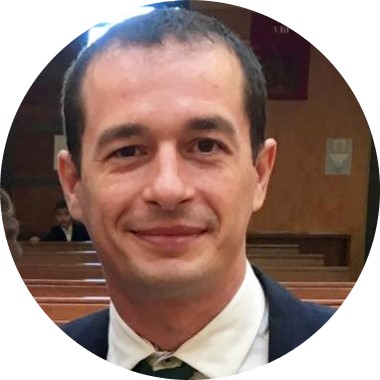
Antonio Barbáchano
Instituto de Investigaciones Biomédicas 'Alberto Sols', Spanish National Research Council (CSIC), Madrid, Spain
Antonio Barbáchano is a researcher at the "Alberto Sols" Biomedical Research Institute (IIBm) in Madrid. He did his PhD at the laboratory of Alberto Muñoz at the IIBm on the effect and regulation of SPROUTY-2 gene in colon cancer. In 2012, following a short stay at Eduard Batlle's laboratory at the Biomedical Research Institute (IRB) in Barcelona, he started developing 3D cultures of human intestinal normal and cancer stem cells. This allowed him to establish colon and rectum organoids from healthy and tumor tissue from biopsies of colorectal patients as a novel system to study the role of vitamin D in this neoplasia. In collaboration with surgeons, oncologists and pathologists of the nearby Hospital Universitario La Paz, he has described that calcitriol (the active metabolite of vitamin D) promotes the undifferentiated cell phenotype in normal colon organoids while it induces cell differentiation in tumor colon organoids, supporting a protective action of vitamin D in colorectal cancer. He has also been able to set up a reproducible drug screening assay using colon tumor organoids. At present, he is focused on the homeostatic effects of vitamin D on the differentiation of human normal intestinal stem cells.
FEBS Letters Award Lecture
Transcription factor control of pluripotency
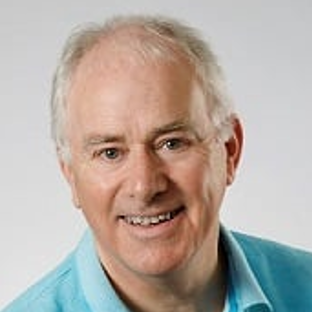
Ian Chambers
University of Edinburgh, Scotland, UK
Ian Chambers is Professor of Pluripotent Stem Cell Biology at the Centre for Regenerative Medicine, University of Edinburgh. After receiving a PhD from the Beatson Institute for Cancer Research, Glasgow in 1987, he carried out postdoctoral work with Paul Berg, Stanford, USA and Austin Smith, Edinburgh, before positions as Reader and then Professor at the University of Edinburgh. He has been Head of the Institute for Stem Cell Research and Associate Director at the Centre for Regenerative Medicine in Edinburgh since 2020. His landmark achievements include identifying UGA, normally a ‘STOP’ codon, as encoding the 21st amino acid selenocysteine, co-discovering NANOG, a key transcription factor that regulates the efficiency of embryonic stem cell self-renewal and pluripotency, and identifying OTX2 as an intrinsic regulator of germline/soma segregation of pluripotent cells. Beyond research, in outreach work with the EU project “EuroSyStem” he has created lessons for secondary school students on stem cells. Among his honours, he has been an Elected Fellow of the Royal Society of Edinburgh and an Elected Member of EMBO since 2014.
FEBS Education Plenary Lecture
Beating to a different drum: how can education become relevant again?
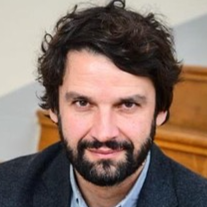
Boris Jokić
Institute for Social Research in Zagreb, Croatia
Boris Jokić is the Director of the Institute for Social Research in Zagreb. He holds a degree in psychology from the Faculty of Philosophy, University of Zagreb and a PhD from the Faculty of Education, University of Cambridge, UK. His scientific career has been strongly rooted in the field of psychology of education. His most recent research focuses on the effects of pandemic on aspirations of children and youth, their learning and trust. He was a member of the National Council of Education and is one of the authors of the current Croatian strategy of education, science and technology. He was the leader of the Comprehensive Curricular Reform of early and pre-school, elementary and secondary education in Croatia. The ideas, processes and values in this reform led to mass protests of support all over Croatia.



